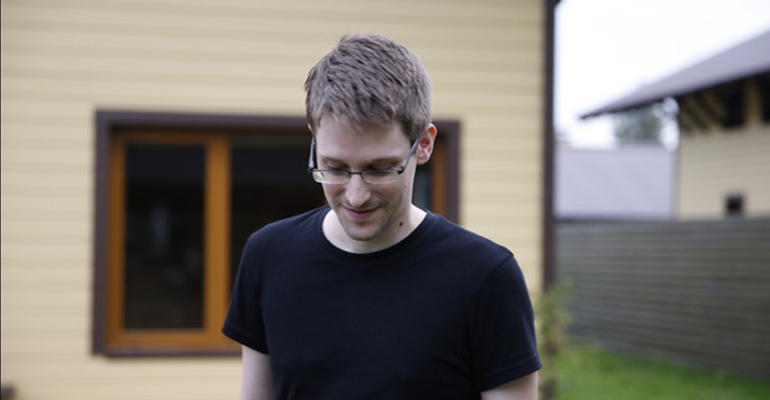Caption: The New York Film Festival featured the release of “Citizenfour” Oct. 10. The film follows Edward Snowden during his eight days in a hotel room in Hong Kong.
This week marks the U.S. release of Laura Poitras’ new film “Citizenfour,” and possibly the birth of a new breed of documentary and storytelling.
Poitras’ eighth documentary premiered at the New York Film Festival Oct. 10 and at the London Film Festival Oct. 18. It will be released in theaters Friday, Oct. 24.
The film follows an iconic political chess piece of recent years, Edward Snowden, during the eight days he spent in a hotel room in Hong Kong, in company of The Guardian journalists Ewen McAskill and Glenn Greenwald.
Poitras was investigating cases of national security abuses for a new documentary project when an individual writing encrypted emails under the nickname “citizen four” contacted her in January 2013, expressing his interest for her previous films and specifically for her recent research on the National Security Agency.
In June 2013, Poitras traveled to Hong Kong, accompanied by the two journalists from The Guardian, to meet the whistle blower. She filmed a series of tense meetings that resulted in world breaking news as former NSA contractor Edward Snowden made his identity public and lifted the veil on what happens behind closed doors at the NSA.
If the movie does not make new revelations about the “Snowdengate,” it offers an experience that plunges the viewer into the concrete reality and intimacy of the encounter, with offering “not retrospective insight, but you-are-there, right-in-the-hotel-room-with-Snowden urgency,” according to Telegraph.
With Poitras’ expertise in documentary making, the reality of the situation and the historical significance of the events portrayed, “Citizenfour” showcases an entirely new, very modern way to go about the art of storytelling.
In fact, “Citizenfour” is a film in which the documentary form is met by the journalism aspect with the newsworthiness of the images and a plotline worthy of a Hollywood-produced political thriller.
Snowden is shown being “notably calm and reasonable,” according to The Guardian, while addressing Greenwald with meaningful statements. “We are building the biggest weapon for oppression in the history of mankind,” he said.
All those elements constitute a very modern form of documentary that might become more common as film technique develops, technology allows more versatility and the journalism profession gets closer to documentary making.
The director has found great success in the past with politically driven documentaries such as “My Country, My Country” that covered the 2005 elections in Iraq, “The Oath,” which followed the paths of two men through al-Qaeda, 9/11 and the U.S. Supreme Court and “Flag Wars,” which addressed the issue of gentrification in the U.S.
With “Citizenfour,” Poitras takes considerable risks for her career as a journalist and a filmmaker as she asserts herself as the link between Snowden’s revelations and the public world, disturbing the actions of many government agencies with her initiatives.
In a 2008 interview about “My Country, My Country,” Poitras said, “The right reason is not to make a successful film. The right reason is that you’re trying to express something and trying to honor those people who are trusting you with their lives.”


























